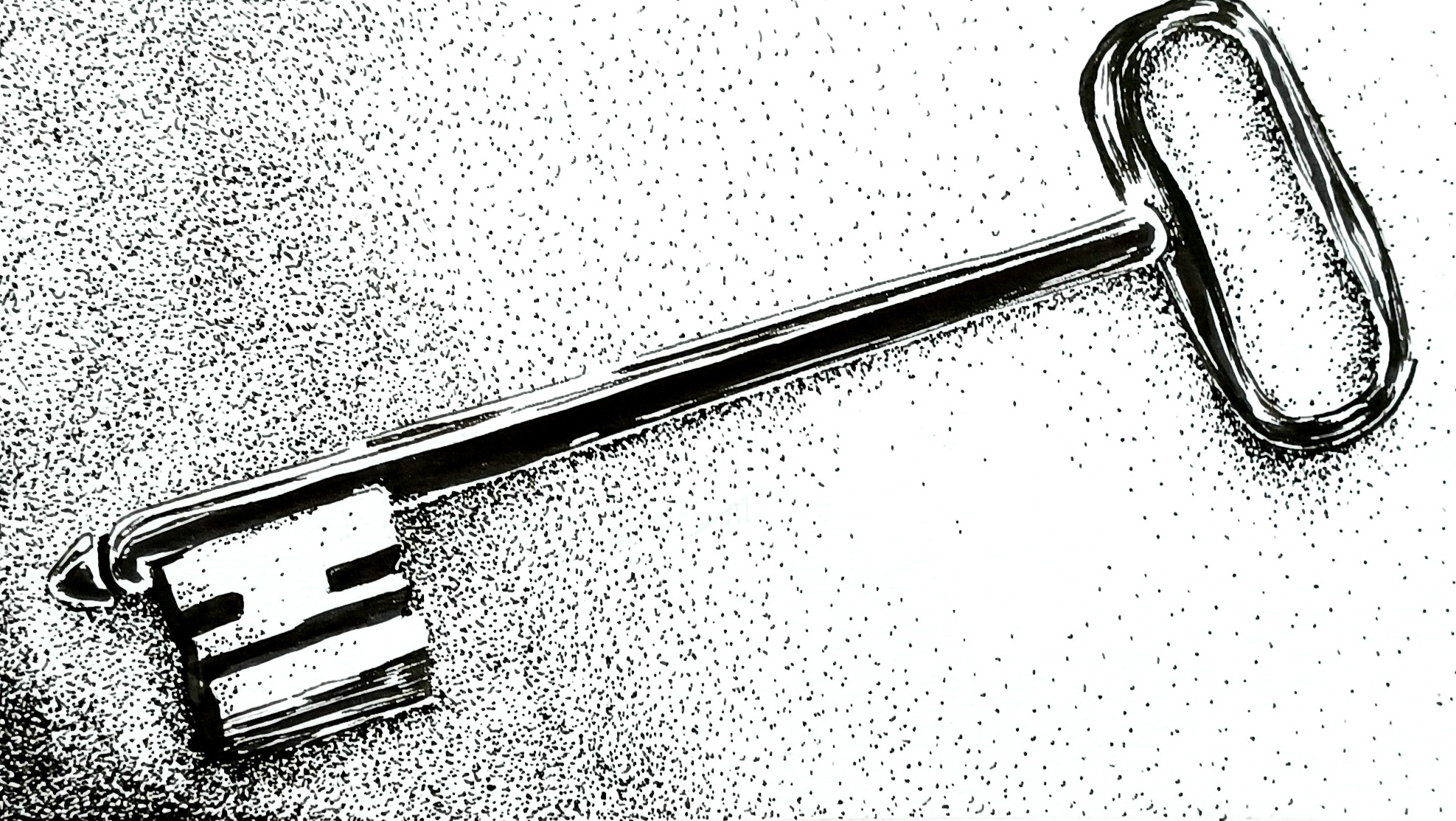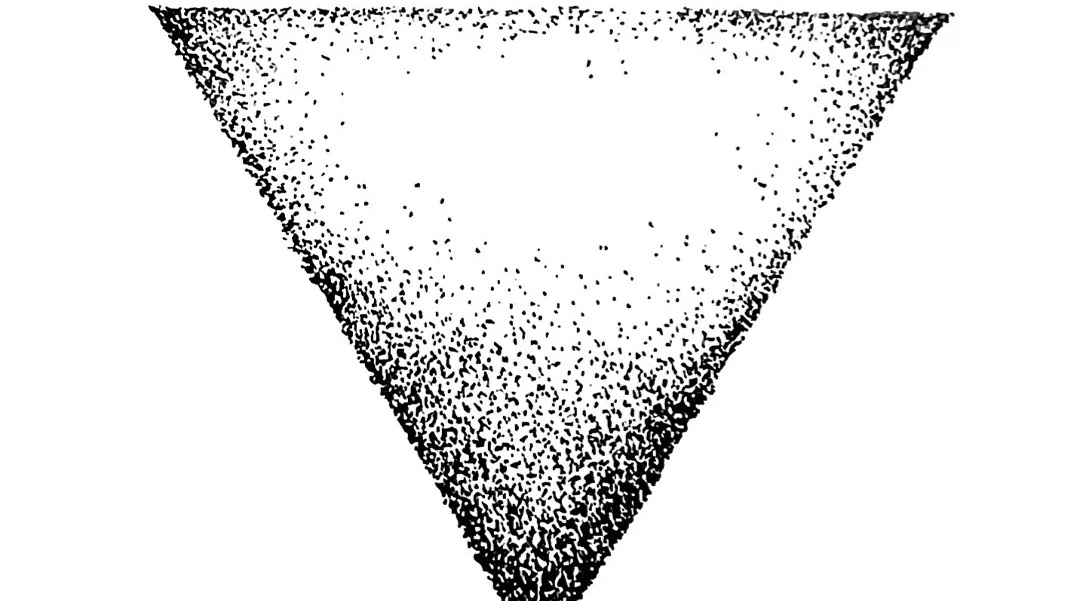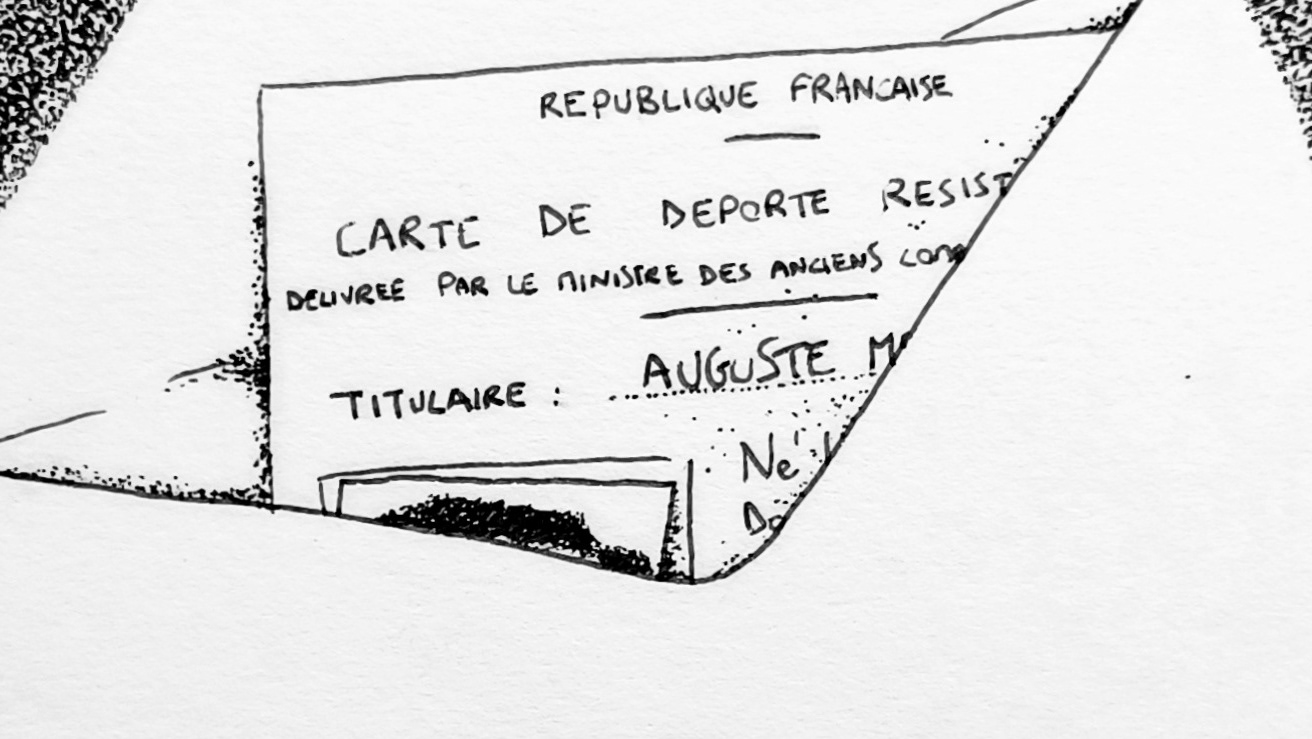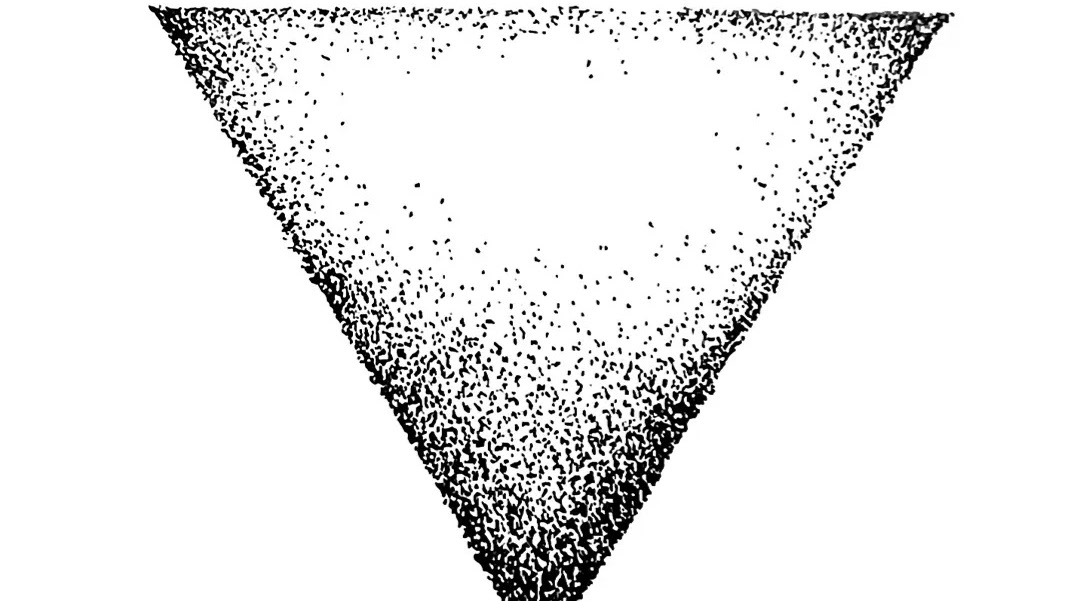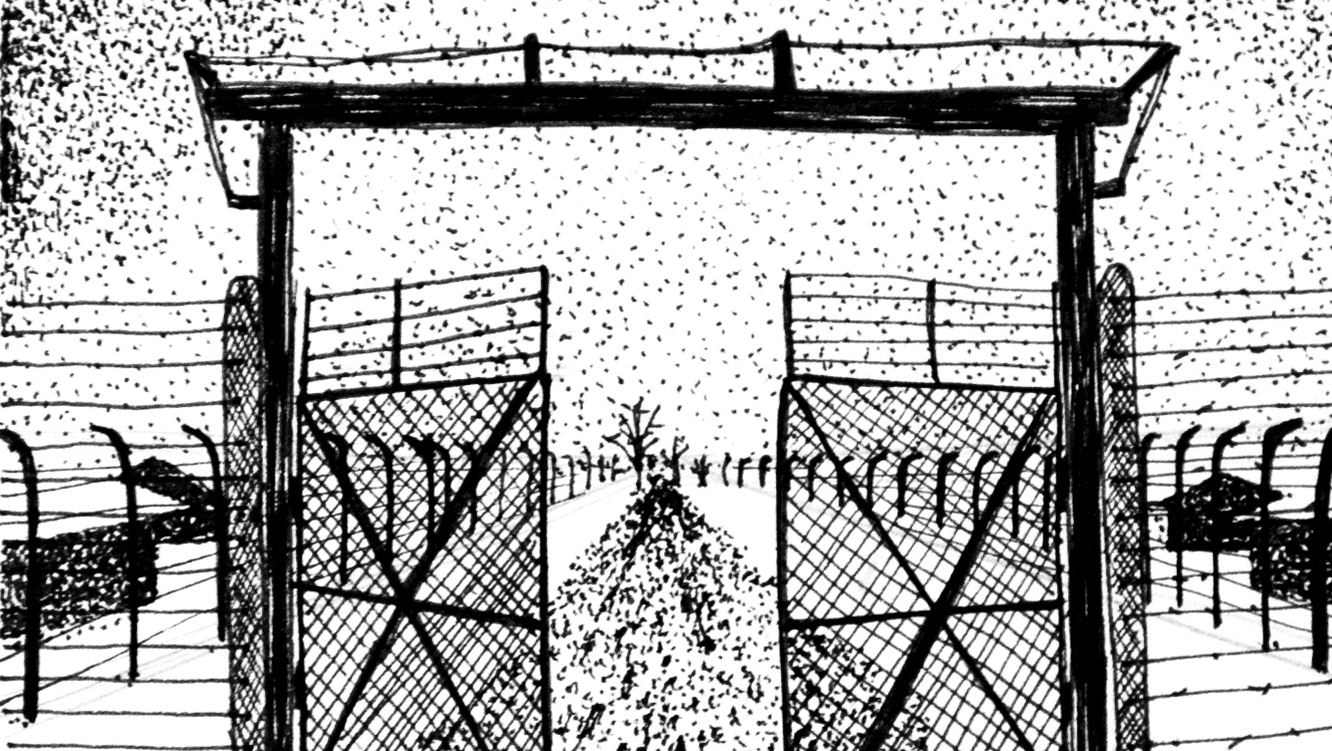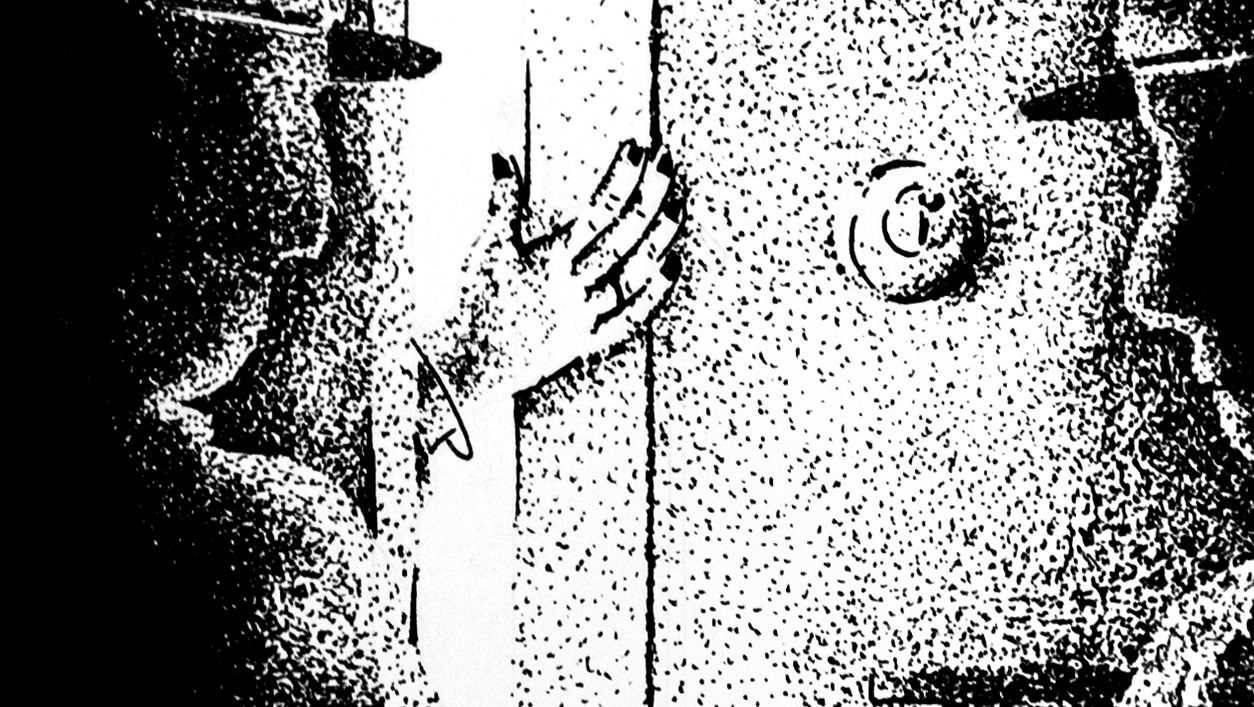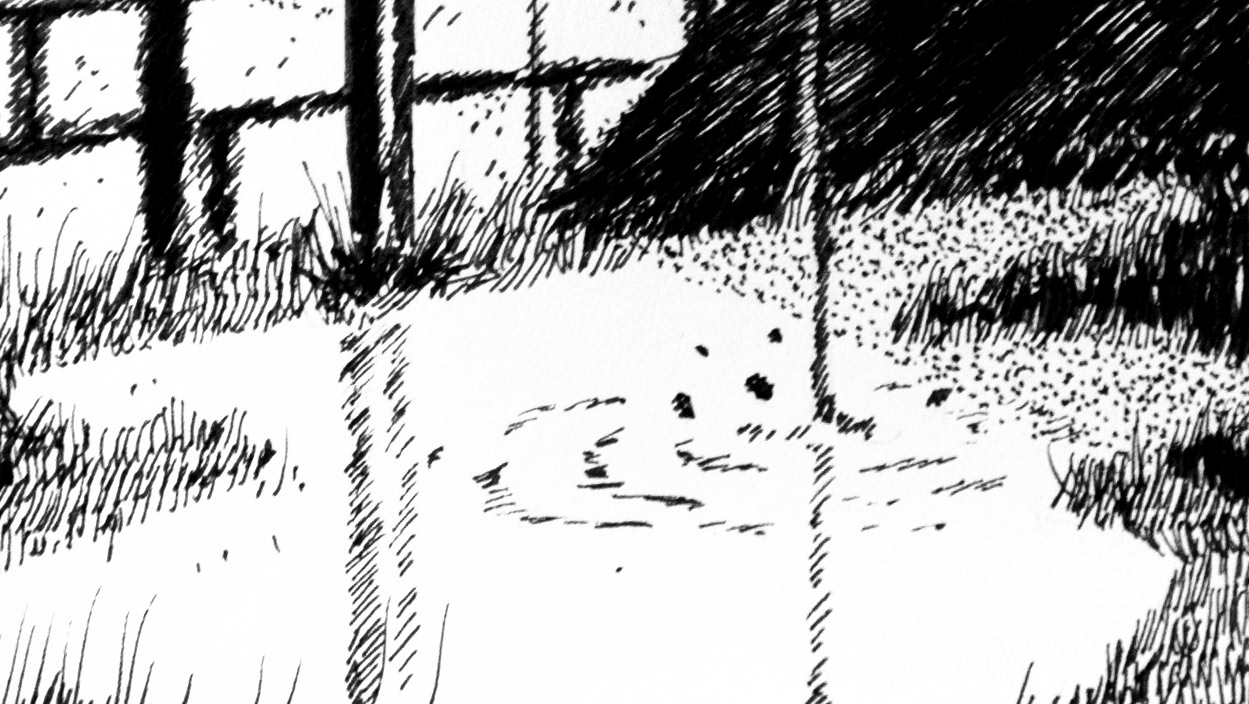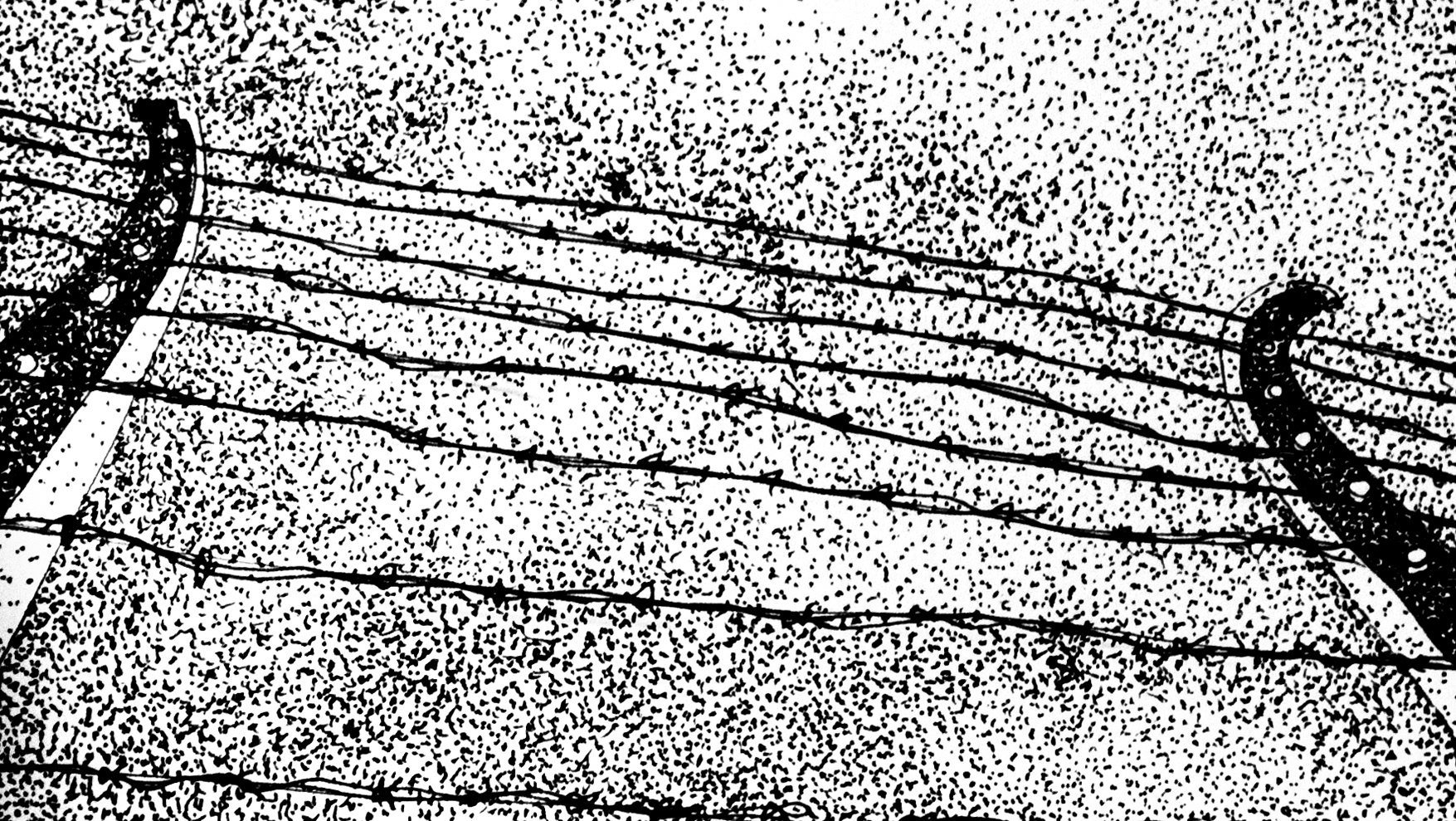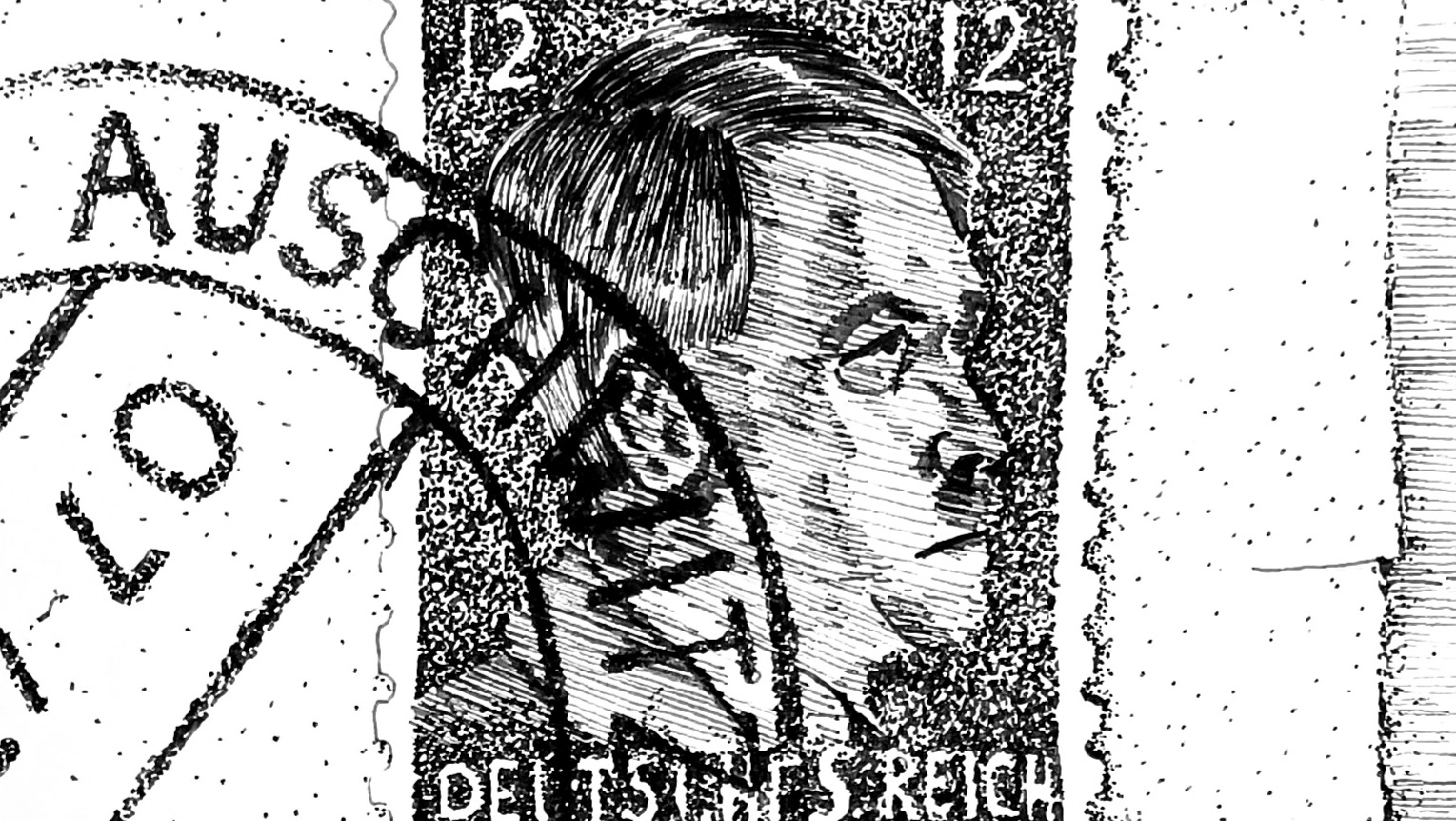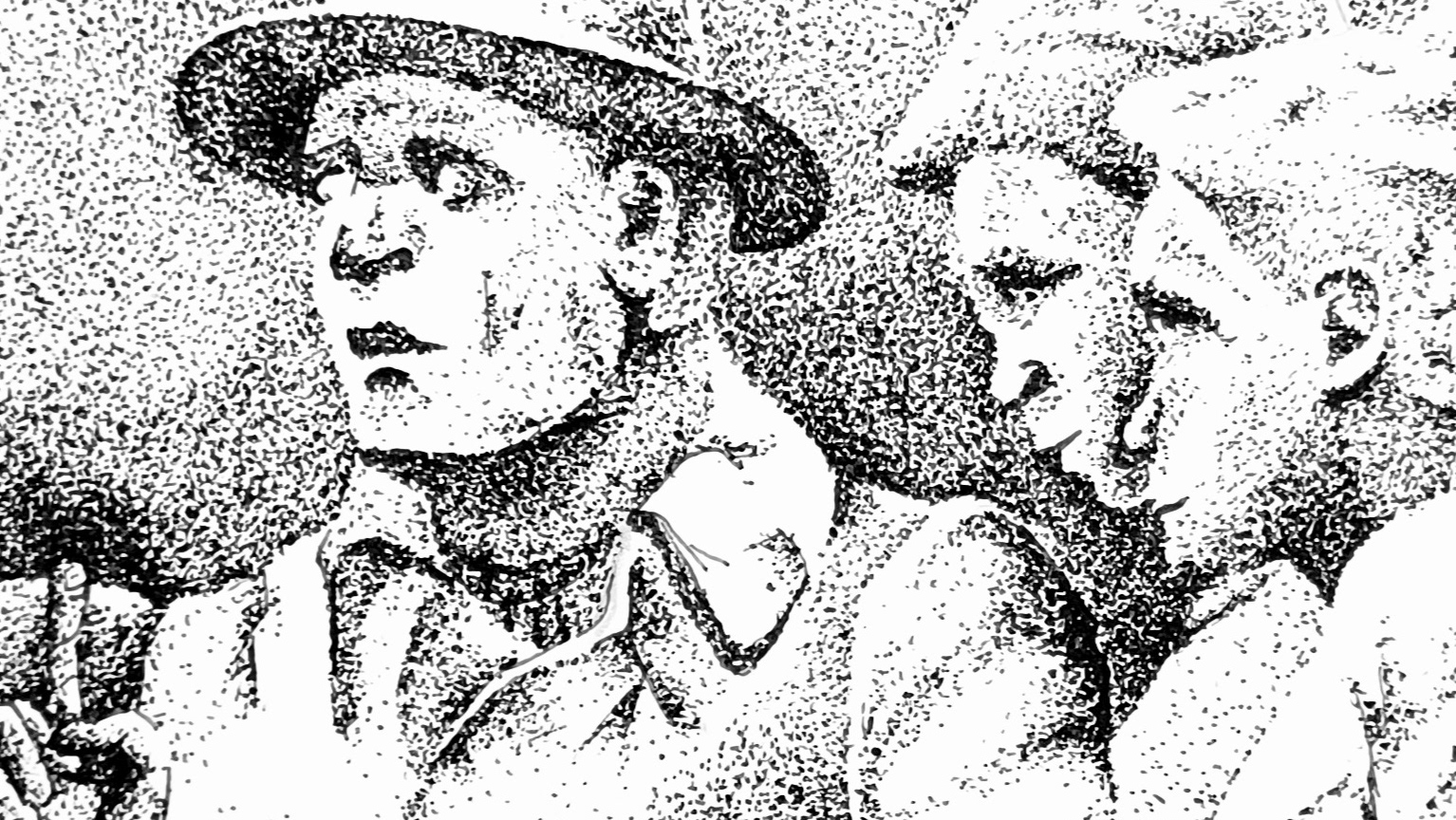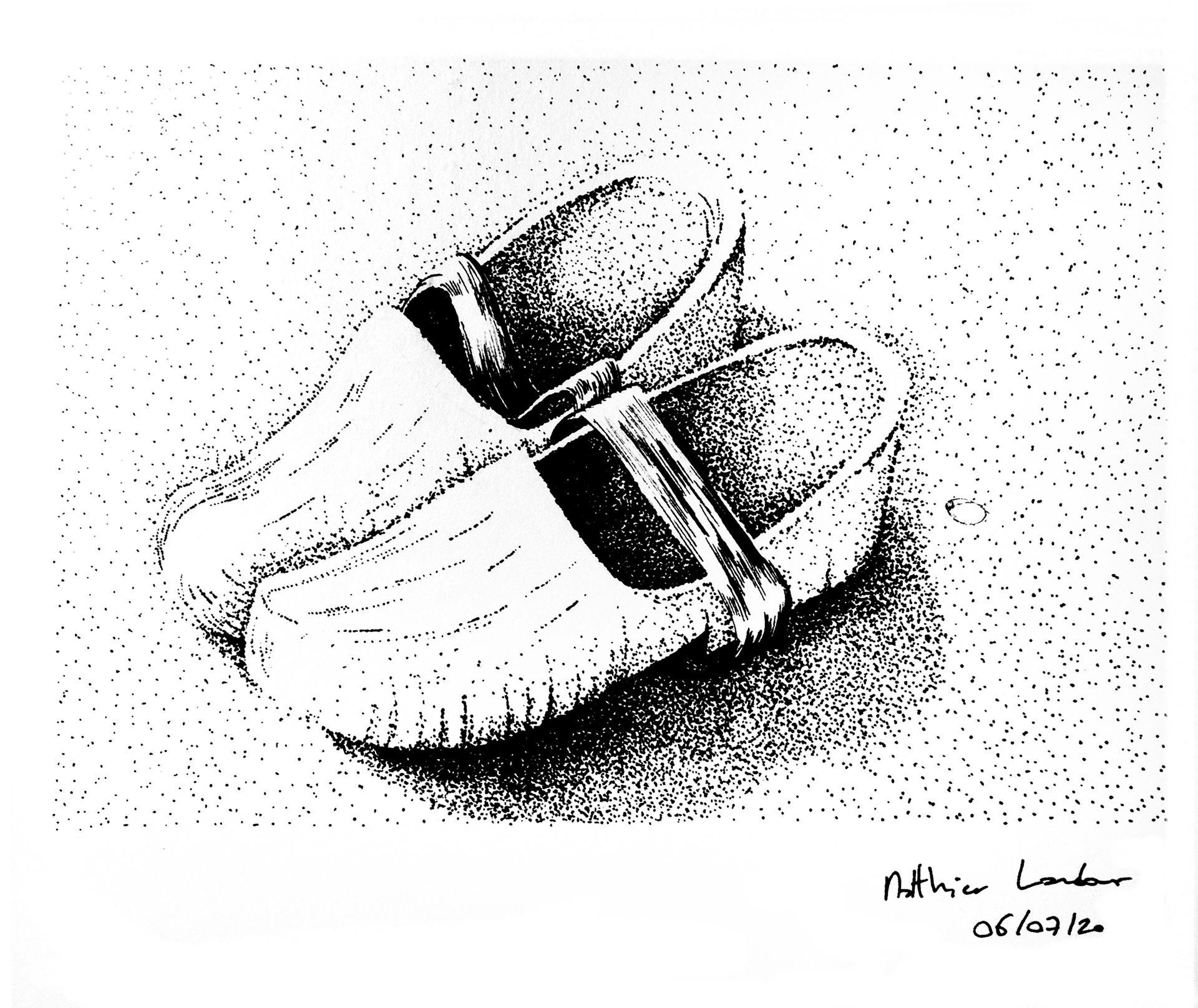
the shoes
Today is the 9th of July. It is 3.30 in the morning and the 45000 wake up under the screams of the guards.
Today, 45000 will receive a so-called education. They will learn rules which will only be useful inside this camp, rules that are of no use anywhere else.
They run outside, form rows of 5, it is messy, and the SS create order with violence. Everyone is there, all the prisoners are outside, thousands of people, forming perfect rows of 5. They have already learned that speed is an important lesson here.
What the SS are doing is unclear, they keep on ordering to form specific manoeuvres in german, and anyone who isn't fast enough gets either hit by a guard or a SS on horse. This feels like performing some sort of rehearsal, yet no one knows which role they are playing.
What the SS are doing in fact is identifying the weakest elements, the slowest ones, the exhausted ones.
Louis Eudier is missing almost all the toes from his right foot, those manoeuvres aren't easy for him. He gets hit more than others, yet he holds on.
Robert Levillon has polio, he usually uses a cane to walk yet he lost his cane at the train the day before. Walking is difficult for him, running is unbearable. He tries his best but already receives hits by the SS, they seem to have spotted him from the start.
It lasts for hours, until the 45000 are ordered to walk to another camp, the second camp, Birkenau, a few kilometers away. Hopefully this will be less dreadful a place.
Even walking turns out to be much harder than you would expect. The shoes the 45000 were given barely qualify as shoes, more planks of wood with elastics. It's uncomfortable, everyone keeps on stumbling, and every stumble is quickly followed with violence by the guards. It feels easier to walk bare feet, despite the rocks.
Robert is struggling, but he holds on.
Back in 1941, Robert was a teacher in Bordeaux, in the south of France. He taught philosophy and mathematics, he enjoyed the company of his students, if it wasn't for the occasional moquery about his physique. In 1941, Robert faced difficulties bigger than himself, France had lost the war, the government had changed, Petain became its leader.
Petain, the hero of the first World War, the marshal had come back to save the country. Not by winning the war, but by accepting the defeat. France should have become part of Germany, but Petain negotiated a truce, he convinced Hitler to let him rule the country and its colonies, in exchange for a complete cooperation. Thanks to Petain, the savior, France had become a shadow.
Petain needed to restore order, force is one solution, so is education. The young generation is the future, it was to learn as early as possible that Germany was our friend, that Petain was benevolent, and history books should be rewritten if necessary. The government made new guidelines for that, including the reintroduction of religion, or "spiritual values" courses more precisely. Then there were courses related to the marshal and the values he brings to the french population.
So on top of philosophy and mathematics, Robert was ordered to help his students make sense of this new situation. He would explain them, sure, but he certainly wouldn't use any guidelines. He didn't tell them Petain was a good leader, he told them he was an old fascist, just like Hitler's Germany. He told them the war wasn't completely over, that french heroes were still fighting out there, in the United Kingdom, in Africa, like the general De Gaulle. He told them they would have to prepare to fight too, soon, for their freedom.
The school administration disagreed with Robert. Guidelines were to be followed, the administration was to respect the education minister's recommendations. They told Robert he should stop, he actually should feel lucky to still be allowed to teach. Robert knew they referred to another new law, the 3rd of October 1940 one, forbidding jewish people to teach in France. Robert was a jewish man who converted to catholicism, so the administration made an exception for him. And every time he disagreed, he was reminded he should feel grateful.
To hell with it! They are right on one point, the youth is the future, they need to know about the failures of this country. 3 months later, Robert was fired. And then he was arrested. Robert wasn't that surprised, he knew they'd find any reason to arrest a jewish person, german and french authorities alike.
Back to the present, after 45 minutes of excruciating walk, the 45000 arrive at Birkenau. Somehow, this place is worse than Auschwitz, it barely registers as a camp. The buildings are rough wooden structures compared to the brick buildings of Auschwitz. Clearly, this place has been built recently, and no one thought much about infrastructure.
Everything is silent, everyone, even the wind disappeared. There are a lot of prisoners, but not a sound.
And there's the mist. Or maybe smoke. A smoke with a terrifying smell, impossible to describe. This smoke seems to come from a building in the distance, a factory probably.
Once again, the SS order the group to form new lines, new moves, over and over again. Everytime someone trips, he gets hit. Doctor Pecker, of jewish origins, is targeted more than the others. Everytime someone gets hit, Doctor Pecker leaves the line and joins him. This infuriates the SS, and they hit Doctor Pecker as well. But Doctor Pecker doesn't seem to care, he just does it again, he treats when the SS hurt. Robert gets hit a few times, Doctor Pecker comes to see him, they both get hit, Robert asks Doctor Pecker to stop, it's entirely unnecessary.
As they wait, a building away, a chariot appears, then prisoners around it. They get in the building, and without a single word, they carry bodies. Dead bodies, thrown inside the chariot, as if it was nothing, as if it meant nothing.
This place is hell, it has to be hell.
It's been the hardest possible day. Without his cane, Robert can't do much, and it doesn't look this place, this hell, will do him any favors. It looks like they are here for a while, and Robert can't take it much longer
The young generation might be different, it'll learn from this. Hopefully, as long as someone survives to tell the truth.
A SS orders a new line, which specifically speaks german. He walks to each person, asking for their profession, mocking them. He seems to have a lot of fun with his little number. Robert knows the SS will come to him soon, he is one of the first of the line.
He asks Robert his job, Robert answers, the SS scoffs and mocks him.
Robert yells "Long live General DeGaulle" as loud as he can. The 45000 are shocked, the SS is furious, he didn't understand a word that was said, he only knows someone ruined his little show. Robert wants to end this on his own terms.
The SS shoots Robert, in front of everyone, without a word. There was the biggest lesson of the camp, the education is over.
Notes
Thank you very much for listening to this episode of 3100045000, the story of 2 trains of french members of the resistance. My name is Matthieu Landour Engel and from this point on, I would like to make a warning, as some details of this podcast are violent and graphic, even on a radio format.
This episode focuses on the first day of the 45000 at Birkenau, and on Robert Levillon, a teacher.
The prisoners woke up very early, around 3am in the morning, which is not too surprising a time to wake up in the morning in those camps. Usually, the prisoners were woken up around 4.30 in summer, and 5.30 in winter. Then the 45000 were brought to the second camp, Birkenau, which is a far bigger place. It is located only a few kilometers away from Auschwitz, 3 to 4 kilometers and it covers 140 acres which is around 1.4 square kilometers. It was established in March 1942, a few months before the 45000 arrived, so they would witness the expansion of the place, including the installation of new train tracks inside the camp. 300 housings would be built, brick structures but mostly wooden structures.
Birkenau served 2 fonctions, it was both a concentration camp and an extermination center. The extermination facility was slightly adjacent to the camp, so the prisoners couldn’t see directly the extermination process, although they would soon all hear about it and understand the process. The first 2 gas chambers , known as bunker 1 and 2, were built in 1942, they were converted farmhouses. 4 more gas chambers and crematorium complexes would then be built. 90% of the extermination process happened in Birkenau, and 90% of the extermination was directly towards the jewish population. I will explain this further in other episodes. Once again, Birkenau was built from the beginning with the extermination process in mind, which represented at the time a whole new category of camp.
The 45000 entered Birkenau on the 9th of July, they would spend the day there in order to learn the so-called rules of the camp.
The extermination of the jewish population had already started, the first gas chamber started working on february 1942, although it had been tested prior. Crematorium were already in use, and gas chambers and crematoriums started working also in Birkenau, from March 1942 on. it must be noted that the 2 rooms where the 45000 spent their first night were the rooms where the Zyklon B had first been tested. They couldn't know that information, but it is a chilling fact.
I focused on the stories of Robert Levillon, a french teacher of jewish origins, who struggled with new education guidelines as well as with the new laws forbidding the jewish population to work in certain areas.
The 3rd of October 1940 law is an anti semitic law, passed by the Vichy government, excluding the jewish population in France from elected bodies, positions of responsibility in the civil service, judiciary, military, and also anything influencing the french cultural and educational world. This excludes the jewish population from teaching, journalism, radio and film making. That law was soon followed by the 4th of october’s law, authorizing the internment of foreign jews in special camps, the 7th of October’s law, repealing the extension of french citizenship to the jewish algerian population.
So Petain strongly believed in the power of education, he wanted to shape the youth with his values. So schools textbooks were to change accordingly. Some books were forbidden, teacher syndicates were dissolved, and as a law passed on the 3rd of october 1940, jewish people could no longer access administrative positions, including teaching. A lot of pictures of Petain were printed so the little boys and girls could at an early age see what the leader of france looked like. Sports and religion were also given a boost during the Vichy regime, as well as household courses. the idea was, roughly, that the french lost the Second World War because they lost their values, so there was a need for restoring that concept of strong men and strong women, with men working and women taking care of the house.
Robert Levillon had a condition, he had polio, which is an infectious disease and in some cases, causes weakness in the muscles. In the case of Robert Levillon, he had trouble walking and used a cane. I have no way of knowing if Robert was beaten by the SS that day, I can only assume as the handicapped were often targeted. Yet the death of Robert Levillon has been witnessed and confirmed by a prisoner named David Badache, I did not invent that part. I will mention David Badache in another episode. His recollection of the event is not entirely precise, he thought Mr Levillon was a theology teacher in Paris, but Mr levillon was a philosophy teacher in Bordeaux.
I have been trying to find Robert Levillons’s relatives, unfortunately, my research was unsuccessful. If by any chance, you know of someone related to Robert Levillon, please let me know, I would be very pleased to get in touch and make sure the text I wrote doesn’t contain any errors.
A small note about the shoes of the prisoners. They were given wooden thongs or flip flops, with a small piece of elastic to hold them on your feet. Those shoes were often too big or too small, they weren’t given size shoes. They were apparently very uncomfortable and hard to walk with, to a point where it felt for many easier to walk bare feet. yet walking bare feet was very dangerous, as the whole camp was quite rocky. So the choice to make was hard, to either walk bare feet and hurt your feet or walk with the shoes, yet taking the risk to trip and be beaten by the guards.
My sources for this story are the book red triangles in Auschwitz, by Claudine Cardon Hamet, the website deportes-politiques-auschwitz.fr, memoire vive and the foundation for the memory of deportation website and the fantastic website auschwitz.org . I am also putting links to other websites related to the school system under the Vichy regime.
This is it for today, the next episode will be about Ferdinand Thiault, a man who saw the world.
